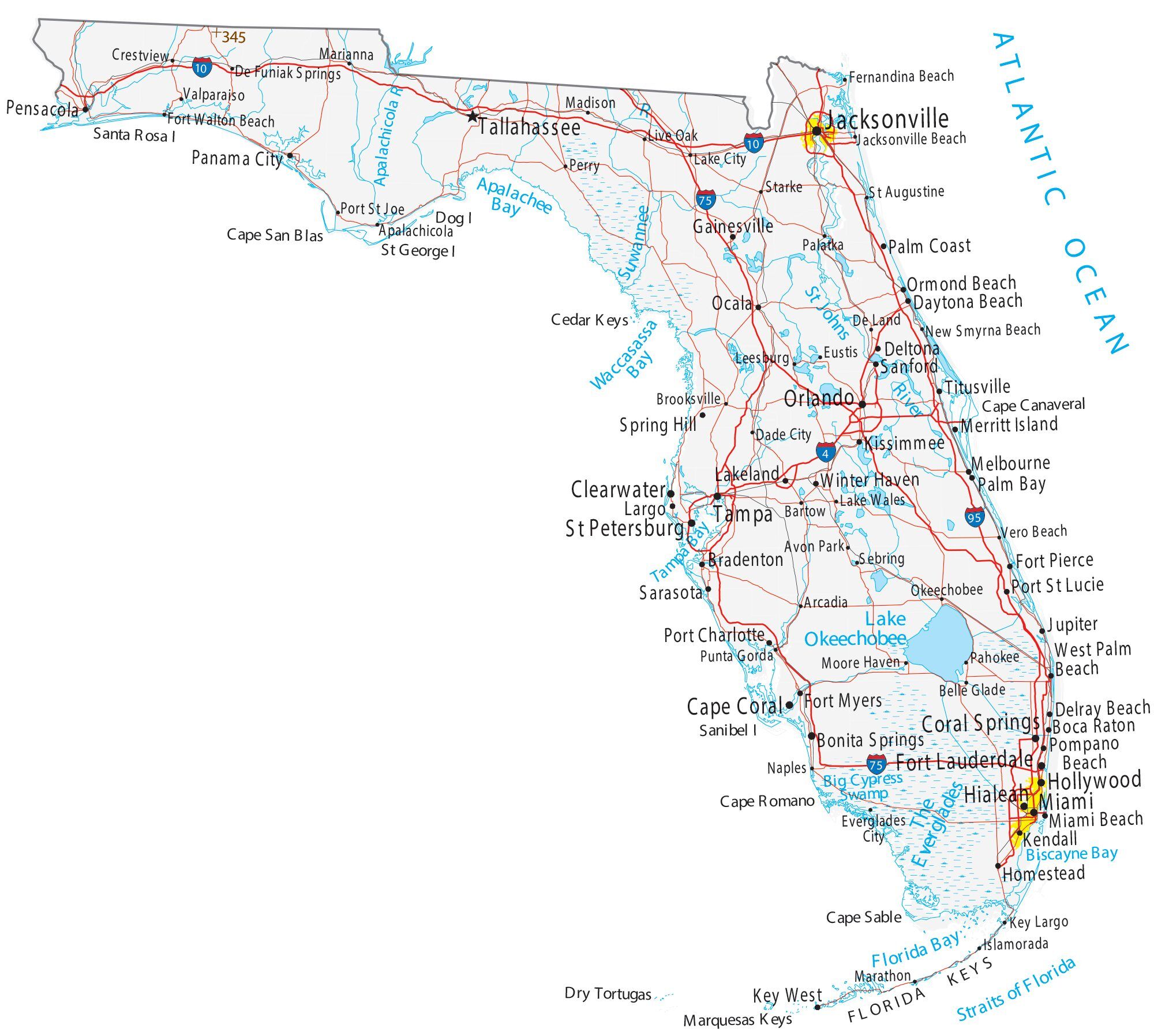Understanding Florida septic requirements is essential for homeowners, business owners, and property managers. Florida septic system regulations are designed to protect the environment and public health while ensuring that your system operates efficiently. This article will cover everything you need to know about installation permits, tank sizing, wastewater disposal, maintenance, costs, and compliance with Florida septic laws.
- State-Specific Regulations Information
- Compliance Information
- Cost Information
- Local Resources & Contact Information
- Contact
- Supportive Resources
- FAQs about Florida Septic Requirements
When dealing with a septic system in Florida, it is crucial to be aware of local and state guidelines. Compliance with these regulations helps prevent costly repairs and environmental hazards. Let’s explore each aspect step by step.
State-Specific Regulations Information
Installation Permits
In Florida, installing a septic system requires obtaining a permit from the Florida Department of Health (DOH). The permit ensures that the system complies with state regulations and is safe for the environment. Permit costs can vary depending on the location, system type, and size. On average, the cost of a Florida septic permit ranges from $300 to $1,500. Factors such as proximity to water bodies and soil conditions can also influence the cost. Homeowners and contractors should submit applications well in advance, as processing times can vary.
Applying for a permit typically involves providing site plans, soil tests, and system specifications. The Florida Department of Health thoroughly reviews these documents to ensure compliance with Florida septic tank laws and placement requirements. Following proper guidelines from the start can save time and money in the long run.
Septic Tank Size and Placement
Florida septic tank laws have specific guidelines for tank sizing and placement. The size of the septic tank depends on the number of bedrooms in the home and the estimated wastewater flow. For a standard residential system, a minimum tank size of 1,000 gallons is recommended. However, larger households may require larger tanks. Additionally, the placement of the drain field must follow strict regulations to prevent contamination of nearby water sources.
Proper placement is essential to avoid issues with soil saturation and environmental pollution. The Florida Health Department guidelines specify distances that must be maintained from wells, lakes, rivers, and other water sources. Adhering to these regulations ensures that the system remains functional and environmentally responsible.
Wastewater Disposal
Wastewater disposal regulations in Florida aim to protect the environment and public health. Florida wastewater management regulations are enforced by the Florida Environmental Protection Agency (FDEP) and local health departments. Wastewater must be properly treated and disposed of to prevent contamination of water sources, which can pose significant health and environmental risks.
Homeowners must follow the guidelines for discharging wastewater into the septic system to ensure compliance. Proper wastewater disposal requires maintaining the system to prevent back-ups and leaks. Using certified professionals for regular inspections and maintenance helps maintain wastewater disposal compliance and ensures that the system adheres to Florida septic tank laws.
Maintenance and Pumping
Regular maintenance and pumping are crucial for the longevity of your septic system in Florida. The Florida Health Department guidelines recommend a septic tank inspection every three to five years. This schedule ensures that any issues are identified and addressed early, preventing costly repairs.
Pumping services are necessary to remove solids from the tank, which can otherwise cause blockages and system failure. The cost of septic pumping services typically ranges between $300 and $600 in Florida, depending on the tank size and accessibility. Regular maintenance also includes checking for leaks, drain field health, and overall system performance. Hiring a certified septic professional ensures that your system remains compliant with state regulations and operates efficiently.
Compliance Information
Potential Fines and Penalties
Failure to comply with Florida septic system regulations can result in significant fines and penalties. Violating installation, maintenance, or wastewater disposal guidelines can result in fines ranging from $500 to $10,000. In some cases, legal action may be taken if violations pose environmental hazards or health risks.
Common violations include improper septic tank installation, failure to pump the system as required, and discharging wastewater in unauthorized areas. To avoid penalties, it’s important to follow the Florida Department of Health and Florida Environmental Protection Agency guidelines. Staying informed about local and state regulations helps prevent costly legal and environmental complications.
Environmental Protection Guidelines
Florida has unique environmental protection measures in place to safeguard its natural resources. The Florida Environmental Protection Agency (FDEP) and local health departments enforce strict wastewater disposal and system maintenance guidelines to protect the state’s water sources. Florida’s environmental protection initiatives focus on preventing groundwater contamination and safeguarding lakes, rivers, and coastal areas.
Compliance with these guidelines means following wastewater disposal regulations, maintaining proper system placement, and performing regular inspections. Homeowners and businesses should work with certified professionals who understand the Florida septic system permits and the environmental protection standards set by FDEP and the Florida Health Department.
Cost Information
Permit Fees
Obtaining a permit for a septic system installation in Florida typically involves a fee of $300 to $1,500. The cost depends on factors such as system size, location, and proximity to environmental areas. More complex installations or those near sensitive water sources may incur higher fees. It is important to contact your local Department of Health office to get accurate estimates and application details.
Pumping Costs
Pumping services are necessary to maintain the health and functionality of your septic system. In Florida, the cost for septic pumping services ranges between $300 and $600. Factors that influence pricing include the accessibility of the septic tank, tank size, and location. Investing in regular pumping prevents system blockages and avoids costly repairs down the line.
Installation Costs
Installing a new septic system in Florida involves several costs. On average, a new system installation costs between $3,000 and $10,000. The cost depends on system size, materials, labor, and location. Hiring a certified septic professional ensures proper installation according to Florida septic permits and local regulations. While upfront costs may be high, proper installation ensures long-term functionality and compliance with state and environmental guidelines.
Local Resources & Contact Information
Official State Agencies
The Florida Department of Health (DOH) is the primary agency responsible for regulating septic system installations and maintenance. Their guidelines ensure that installations meet the requirements outlined in Florida septic tank laws. For compliance questions, permit applications, and inspections, homeowners and contractors should contact the Florida Department of Health.
The Florida Environmental Protection Agency (FDEP) also plays a crucial role in enforcing environmental protection regulations. FDEP provides guidelines for wastewater disposal and system maintenance to protect Florida’s natural resources.
Health Departments & Environmental Protection Agencies
Local health departments across Florida offer resources and guidance for homeowners regarding septic system maintenance and compliance. These departments work closely with the Florida Department of Health to ensure adherence to state regulations.
Environmental protection agencies located in counties and municipalities provide support and guidance about wastewater management and disposal. These local offices ensure that the Florida septic system permits and environmental protection guidelines are strictly followed.
Certified Septic Service Providers
To maintain compliance with Florida septic tank laws, it is advisable to hire state-certified septic service companies. These professionals offer installation, maintenance, and pumping services while ensuring compliance with Florida Health Department and FDEP guidelines. A certified company can provide detailed inspections, recommend necessary repairs, and help maintain a well-functioning septic system.
Contact
Florida Department of Health
Bureau of Onsite Sewage Programs (HSES)
4052 Bald Cypress Way,
Bin# A08
Tallahassee, FL 32399-1713
Phone: (850) 245-4070
Supportive Resources
Government Health Departments & Environmental Protection Agencies
For official guidelines and updates about septic system maintenance and installation, visit the Florida Department of Health and Florida Environmental Protection Agency websites. These resources provide comprehensive guidelines, downloadable forms, and helpful information about septic permits, inspections, and compliance requirements.
Trusted Certified Septic Service Providers
Several trusted websites and local service directories list certified septic service providers in Florida. These platforms offer reviews, ratings, and contact details to help homeowners find reliable service companies for installation, maintenance, and pumping services.
Educational Materials and Downloadable Resources
There are numerous handbooks, infographics, and downloadable guides available online that educate homeowners about Florida septic tank laws and environmental protection guidelines. These resources cover septic system care, permit requirements, and best practices for maintenance. Utilizing these materials ensures a better understanding of Florida septic system requirements and helps homeowners make informed decisions about their system care.
Understanding Florida septic requirements is crucial for homeowners and business owners to maintain a compliant, functional system. From installation permits to tank sizing, wastewater disposal, and maintenance, following Florida septic tank laws and guidelines ensures long-term system health and environmental protection. Compliance with regulations from the Florida Department of Health, Florida Environmental Protection Agency, and local health departments minimizes risks of penalties and environmental contamination. By working with certified professionals and accessing helpful resources, homeowners can protect their property, prevent costly repairs, and contribute to safeguarding Florida’s natural resources.
FAQs about Florida Septic Requirements
What are the permit requirements for installing a septic system in Florida?
In Florida, installing a septic system requires obtaining permits from the Florida Department of Health (DOH). The permit ensures that the installation complies with state regulations to protect public health and environmental standards. The cost of a permit varies depending on factors like system size and location but typically ranges from $300 to $600. You can find detailed permit information on local health departments or the Florida DOH’s website www.volusia.org Florida Administrative Rules.
What guidelines are there for the size and placement of a septic tank and drain field?
According to the Florida Building Code and DOH guidelines, the size of a septic tank depends on the number of bedrooms in a home. For most residential properties, a 1,000-gallon tank is commonly recommended. Placement regulations ensure that septic systems are at least 5 feet away from property lines and must adhere to soil absorption field requirements to prevent groundwater contamination Florida Administrative Rules. The placement should also comply with Florida’s environmental protection standards Florida Building.
How does wastewater disposal work under Florida septic system regulations?
Wastewater disposal in Florida must adhere to strict environmental protection regulations. Septic systems should be designed to prevent contamination of groundwater and surface water. Wastewater is processed in a septic tank and then dispersed through a drain field, where soil acts as a natural filter www.volusia.org. Florida regulations discourage the discharge of pollutants, ensuring that all systems meet state wastewater management guidelines Florida Administrative Rules.
How often should a septic system in Florida be pumped and maintained?
Regular maintenance is crucial to keep a septic system functioning optimally. Florida health department guidelines recommend having your septic tank pumped every 2 to 3 years, depending on household size and usage www.volusia.org. Additionally, homeowners should conduct routine inspections to detect issues early and avoid costly repairs. Scheduled maintenance checks by state-certified septic service companies ensure that systems remain compliant with Florida septic laws Florida Administrative Rules.
What are the consequences of failing to comply with Florida septic regulations?
Non-compliance with Florida’s septic system regulations can result in significant penalties. Violating DOH requirements or failing to maintain a septic system according to state codes may lead to fines ranging from $500 to $5,000. Environmental protections unique to Florida, such as safeguarding the water quality in areas like the Blue Spring, further emphasize strict adherence to regulations Florida Administrative Rules. Local governments may also impose corrective actions to remediate any environmental damage caused by non-compliant systems www.volusia.org.
Are there any incentives for upgrading septic systems in Florida?
Yes, in Volusia County, for example, there are incentives available through grants provided by the Florida Department of Environmental Protection. Homeowners can receive up to $10,000 to upgrade existing conventional septic systems. This initiative aims to reduce nitrogen pollution that impacts local water quality www.volusia.org. Such upgrades are often facilitated by state-licensed contractors and must follow local and state regulations Florida Building.
What are the costs associated with septic system maintenance in Florida?
Septic system maintenance costs in Florida vary depending on the service required. Here are typical costs:
- Permit Fees: Around $300 to $600, depending on system specifications and location.
- Pumping Costs: Typically ranges from $300 to $500 for a standard 1,000-gallon tank Florida Administrative Rules.
- Installation Estimates: A new septic system installation costs between $3,000 and $10,000 depending on system size and property location Florida Building.
These costs highlight the importance of regular maintenance to prevent costly repairs and replacements www.volusia.org.
How can I find certified septic service professionals in Florida?
To locate state-certified septic service providers, you can contact your local health department or visit the Florida Department of Health’s website Florida Administrative Rules. You will also find trusted professionals through local environmental protection agencies. Ensuring that a contractor is pre-approved by local health departments guarantees compliance with Florida septic tank laws and building codes Florida Building.
What environmental protections are in place to prevent septic system pollution in Florida?
Florida prioritizes environmental protection, particularly in areas with sensitive ecosystems like springs and coastal regions. Regulations focus on reducing nitrogen runoff from septic systems, which can pollute waterways and groundwater. According to www.volusia.org, these regulations aim to minimize environmental impacts by preventing pollutants from seeping into essential water sources. State initiatives, supported by Florida Administrative Rules, encourage upgrading to nutrient-reducing septic tanks and implementing best practices in wastewater disposal
ICC Digital Codes. Adherence to these guidelines helps protect Florida’s water quality and natural resources, ensuring the preservation of its vital ecosystems
Where can I find official resources to stay compliant with Florida septic regulations?
For authoritative information on septic system regulations and guidelines in Florida, visit these resources:
Local Health Departments: Your local county health department can connect you with state-certified professionals and offer region-specific regulationsFlorida Building.
Florida Department of Health (DOH): Offers comprehensive guidelines for installing, maintaining, and operating septic systemsFlorida Administrative Rules.
Florida Environmental Protection Agency: Provides rules and best practices for wastewater disposal and system upgradeswww.volusia.org.
Directory | Washington Septic Service Providers | Part 1
DIY Repairs Are Always Cheaper
Septic Regulations in Rural Areas: Essential Guide for Rural Property Owners
The Role of Perforated Pipes in Drain Fields
What Happens During a Pumping Service?
Septic Tanks vs. Sewer Systems | Choosing the Right Option







